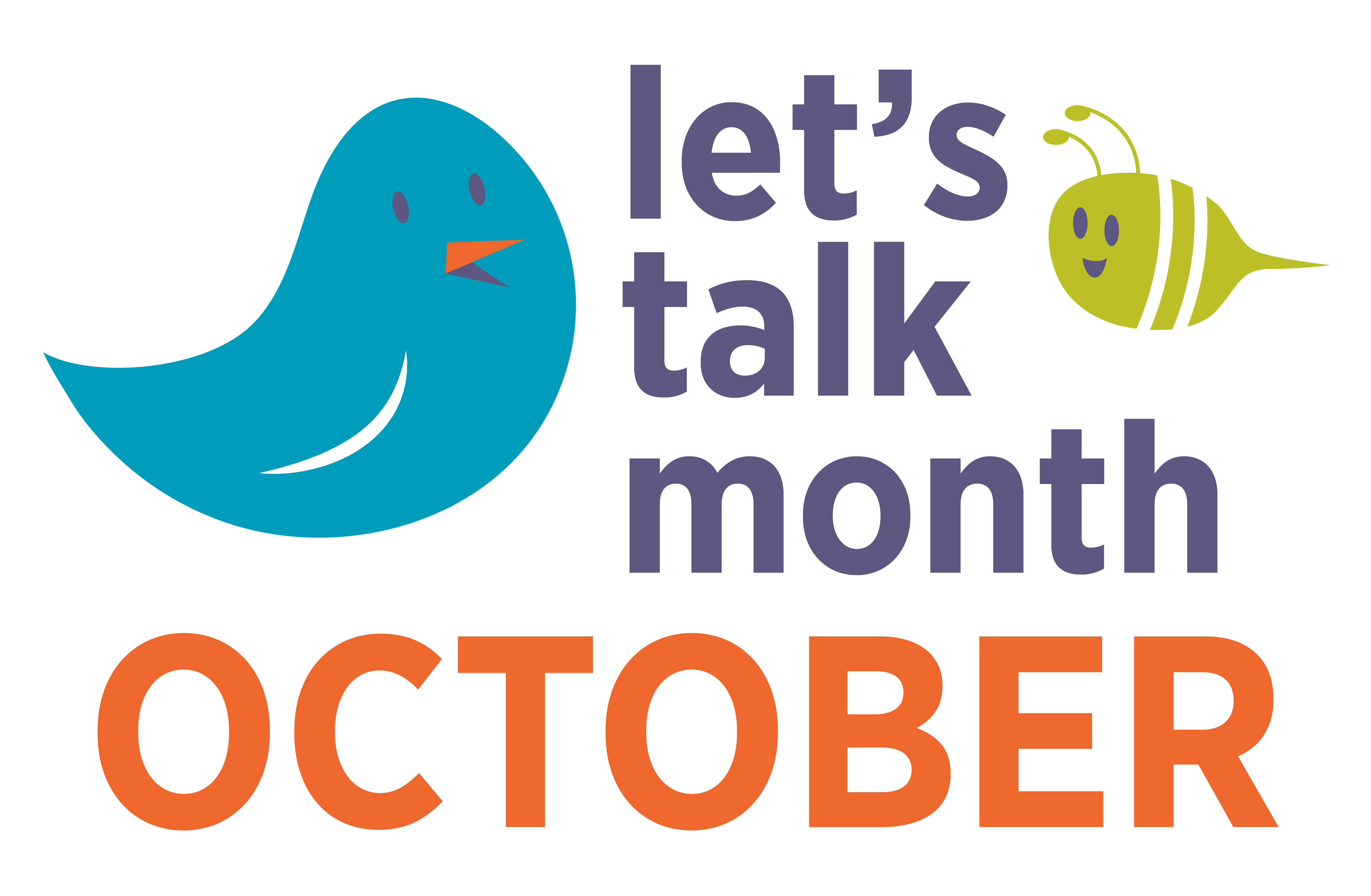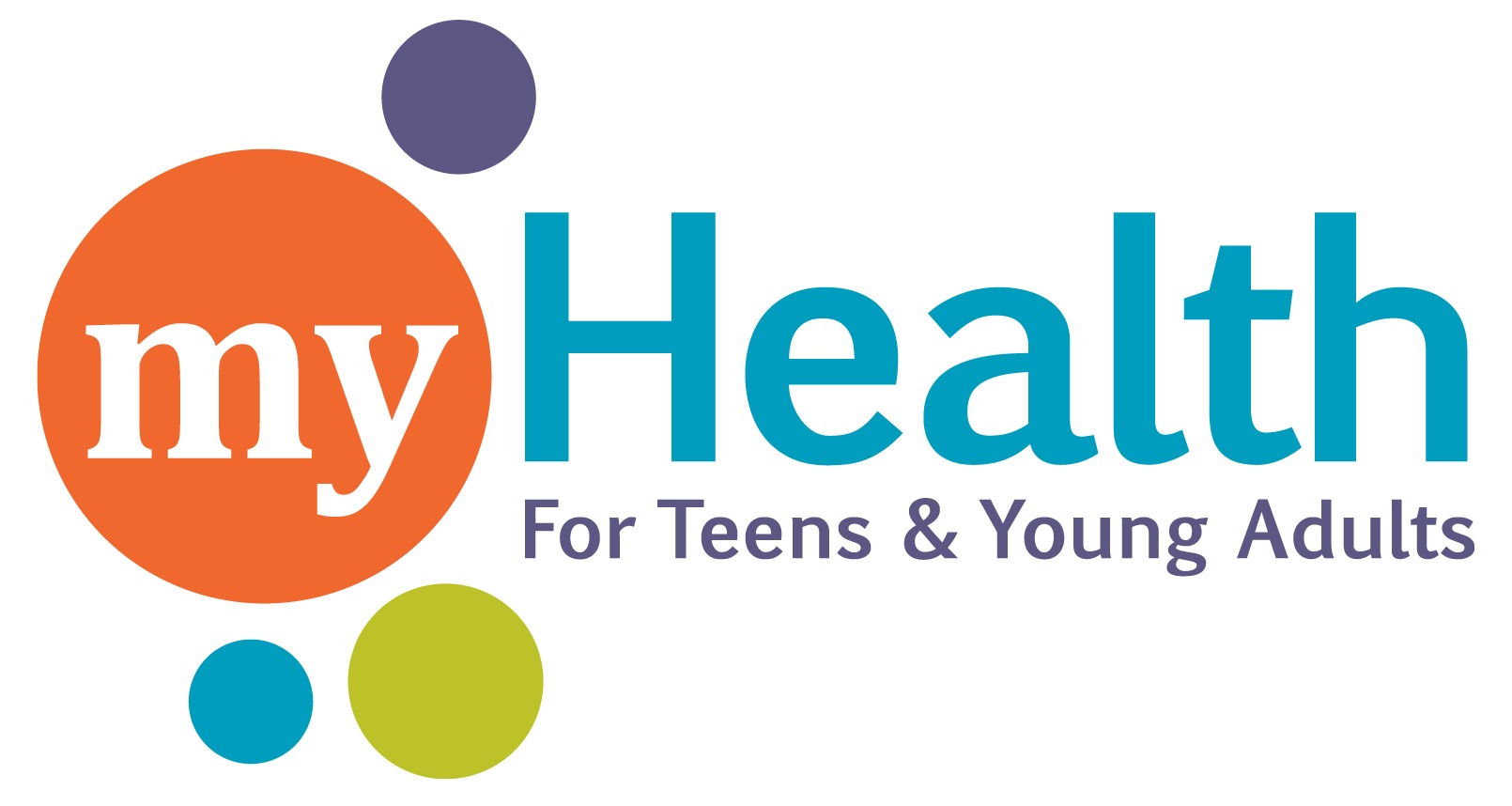
October is Let’s Talk Month. It shouldn’t just be one month but a reminder about the importance of talking to your child about sexuality and their sexual health on a regular basis. We want you to be able to open the door to this conversation. myHealth provides parent education sessions Next one is Oct. 19th where you can hear real questions students ask in school and learn tools to support conversations with your child, teen or young adult.
Like these: (real questions from students)
- I heard you can’t get pregnant your first time is that true?
- If you have 1 STD does that keep you from getting another one?
- How do you know if a relationship is healthy or not. My friend is ALWAYS getting txts from her boyfriend and he gets mad if she doesn’t answer right away even if she’s in school.
- My friend started ghosting me. It totally sucks what can I do?
- Are you supposed to shave your pubic hair? What if you’re a dude?
- Is it normal to question your sexuality?
- How do I tell my parents that I’m bi?
- Why does oral sex count as sex?
There is a lot of assumptions out there when it comes to what our young people are learning and how much of that information is helpful. Let’s bust a few of those myths.
MYTH: My child gets sex ed in school. They get all the information they need.
FACT: Did you know MN State Requirements make us one in only 24 states that actually require sex ed and HIV education. Let’s dig into what those requirements mean. MN schools are required to teach about abstinence, HIV, and healthy relationships (and it could be assumed to cover STI’s but it’s unclear given the wording). Our state does not require that information be inclusive of sexual orientations, provide information on contraceptives or condom use, be medically accurate, culturally appropriate, age appropriate and lastly there is no restriction against promoting religion in our sex education. (Guttmacher 2017)
– Funny take of the sad reality of Sex Ed in our country John Oliver clip from 2015 (The statistics are still pretty accurate and the video helps to break down the state standards and their meaning)
Now, those are just the basic requirements. Some schools have amazing semester long comprehensive sexual health education where they talk about contraceptives, barrier methods, boundaries, consent, communication, navigating pressure, gender, sexual orientation, love, pleasure etc. On the other end of the spectrum, some schools teach only the required minimum and pack it into 1-3 classes ONCE during a students’ entire high school education. As a parent, it’s up to you to know what your school policy is because there is such a wide range. If you feel information at your school is lacking, this TIP SHEET can help you advocate for more comprehensive sexual health education. If your child isn’t getting all the information you want them to have, it’s important to supplement that education at home or you can bring them to myHealth. We provide medically accurate, fact based, age and culturally appropriate education is provided value and judgement free. We will answer any of their questions so they can make the best decision for themselves.
Though hard at times, it is important to talk with your young person because it helps keep your child/ teen safe. By having fact based information about their body, how to keep their body healthy, how to build healthy relationships and make the best decisions for them. Sexuality is a broad topic that includes body parts, self-esteem, friendships relationships, messages from the media and our friends, and our values etc.
– Sexuality at every age and stage (LINK TO HOW TO TALK TO CHILDREN ABOUT SEXUALITY)- check out this tip sheet of what topics and questions are relevant at each age and stage.
MYTH: Talking about sex and sexuality will cause my child to have sex and be unsafe.
FACT: Parent-child communication about sexuality promotes sexually healthy behaviors
“When young people feel unconnected to home, family, and school, they may become involved in activities that put their health at risk. However, when parents affirm the value of their children, young people more often develop positive, healthy attitudes about themselves. Although most adults want youth to know about abstinence, contraception, and how to prevent HIV and other sexually transmitted infections (STIs), parents often have difficulty communicating about sex. Nevertheless, positive communication between parents and children greatly helps young people to establish individual values and to make healthy decisions.”
– Tips to keep kids safe – talking to our kids/teens about sexuality, boundaries, and our bodies keeps them safe from abuse.
KEEP THE CONVERSATION GOING!
It’s easy to let our emotions run the conversations when we are worried or concerned about our young person. Remember that you love them and you want them to have the information to make the best decisions. Take a breath, remind yourself that you care about them, pause, and then respond. Try using some of the Door Openers below to start the conversation. You’ll be amazed how much more they will share with you. Try to keep the door open to conversations about sexuality. Ask them what they think and why? How they came to that conclusion? How will it feel if … happens to a friend or if … were to be a consequence of a behavior? Young people are learning their own values and figuring out what is important to them so keep picking their mind to ask them how they decided on that. This helps them understand how they make decisions because their prefrontal cortex (the part of the brain that uses logic and critical thinking) is still being developed during adolescence and into early adulthood. Help them sort through their values and the why’s behind them.
When we use the Door Slammers it does just that, it ends the conversation. They may not turn to you next time they want a second opinion and they will find it somewhere else. Take a minute to share your values and seek their perspective.
Door Openers
- “What do you think?”
- “That’s a good question.”
- “I don’t know, but I’ll find out.”
- “I’m trying to understand what you’re feeling/ asking?”
- “Do you know that word means?”
- “I’m glad you told me about that.”
Door Slammers
- “You’re too young.”
- “Where did you hear that?”
- “If you say that word again, I’ll …”
- “That’s none of your business.”
- “I don’t care what your friends are doing.”
- “That’s just for boys (girls).”
- “We’ll talk about that when you need to know.
MORE RESOURCES
- MN Adolescent Sexual Health Report
- Tips in talking with your teens about contraception. By Barbara Huberman, RN, BSN, MEd, Director of Education and Outreach, Advocates for Youth
- National Guidelines for comprehensive sexual health education (you can use this resource to advocate for your school to provide more comprehensive education and it breaks everything down by what is developmentally appropriate for each grade level)
